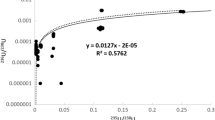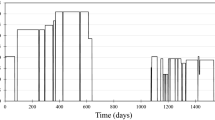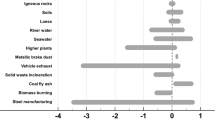Abstract
IN practice, the mass of a neutral atom is expressed in terms of a particular nuclidic mass which is assumed to have an integral value and is termed the primary standard. With 12C as the primary standard (126M = 12u) nuclidic masses are found to be close to integral values and the difference between the measured mass (AZM) and the integral value Au is called the ‘mass excess’1. Alternatively, the mass of a nuclide (A, Z) relative to 12C could be expressed in the form:  where Z(Δ)A12 is a small proper fraction (±) which will be referred to as the ‘mass fraction’. It should be noted that the ‘mass fraction’ is a dimensionless quantity whereas the ‘mass excess’ equals Z(Δ)A12 u.
where Z(Δ)A12 is a small proper fraction (±) which will be referred to as the ‘mass fraction’. It should be noted that the ‘mass fraction’ is a dimensionless quantity whereas the ‘mass excess’ equals Z(Δ)A12 u.
This is a preview of subscription content, access via your institution
Access options
Subscribe to this journal
Receive 51 print issues and online access
$199.00 per year
only $3.90 per issue
Buy this article
- Purchase on Springer Link
- Instant access to full article PDF
Prices may be subject to local taxes which are calculated during checkout
Similar content being viewed by others
References
SUN Commission, Phys. Today, 15, 6, 20 (1962).
Everling, F., König, L. A., Mattauch, J. H. E., and Wapstra, A. H., Nucl. Phys., 18, 529 (1960).
Mattauch, J., Z. Naturforsch., 13A, 572 (1958).
Author information
Authors and Affiliations
Rights and permissions
About this article
Cite this article
DURNFORD, A. Uniqueness of the Mass-surface Relative to Iron-56. Nature 205, 789–790 (1965). https://doi.org/10.1038/205789a0
Issue Date:
DOI: https://doi.org/10.1038/205789a0
This article is cited by
Comments
By submitting a comment you agree to abide by our Terms and Community Guidelines. If you find something abusive or that does not comply with our terms or guidelines please flag it as inappropriate.



